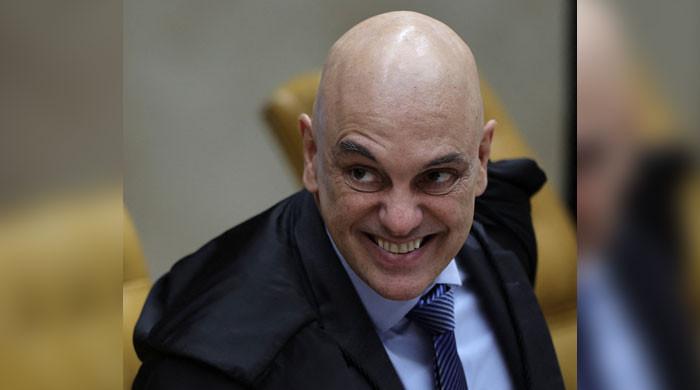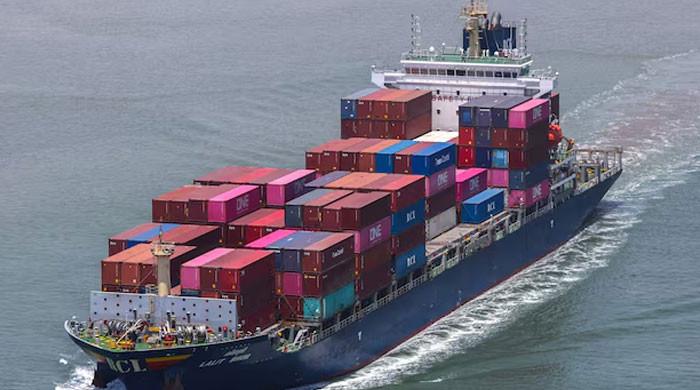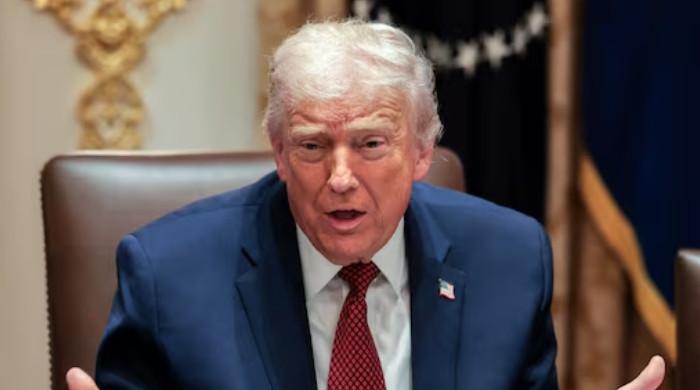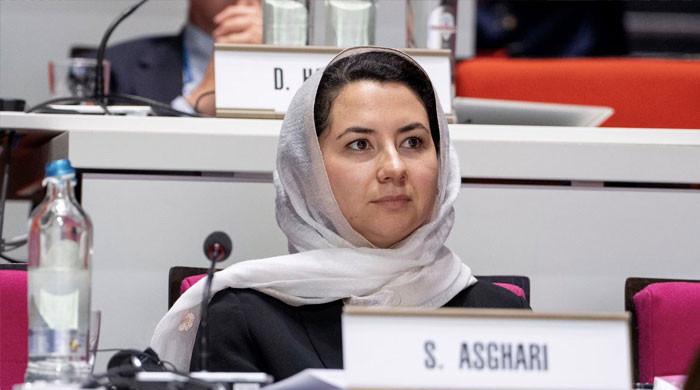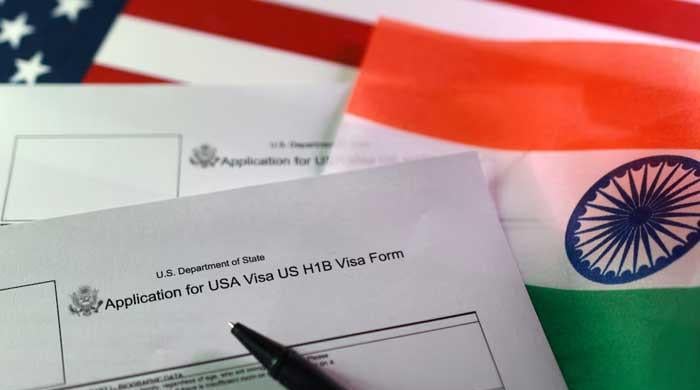Afghan peace dividend: A challenge for all involved
Pakistan has suffered losses of USD 125 billion and continue to live the aftershocks of the economic disaster
March 01, 2020
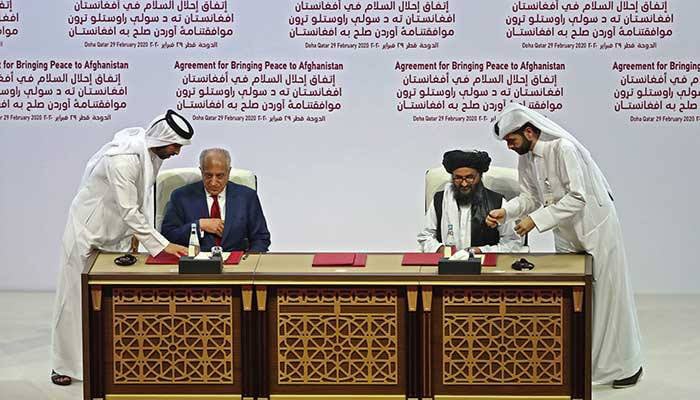
The Afghan peace agreement in Doha signals towards the end of a brutal Afghan war which has resulted in over 225,000 civilian and military deaths. The figure includes nearly 70,000 civilian and military deaths in Pakistan as well.
America has spent over USD 2 trillion in the Afghan war since 2001 and will continue to spend hundreds of billions of dollars in debt payments, veteran and other expenses in the years to come. Pakistan has suffered losses of USD 125 billion and continue to live the aftershocks of the economic disaster. Due to the political disconnect, despite efforts of the US and other countries , poverty in Afghanistan has increased from 36% in 2007 to over 50% in 2017. This was disclosed in a testimony by US Assistant Secretary of State for South Asia, Alice Wells in a recent congressional hearing.
The signing of the peace agreement is vindication of Prime Minister Imran Khan stance from the outset in favor of a negotiated end to this unnecessary military conflict. It also further enhances the repute of COAS Gen Qamar Javed Bajwa as a “Diplomat General” besides his military credentials. Foreign Minister Shah Mahmood Qureshi's experience played a major role in handling the complicated facets of Afghan peace process. Mr. Qureshi continuously engaged with Afghan government, Taliban and other stake holders during his visits to Afghanistan, other capitals and in Islamabad.
Pakistan's reputation as a country which has resolutely fought against terror and facilitated a peaceful settlement has received a huge boost with the signing of the agreement. It’s a strong reflection of the good working relationship between political and military institutions. This welcome development comes on the heels of a successful visit by United Nations Secretary General. However, the challenges remain and are massive. US Secretary Mike Pompeo has already warned of spoilers specifically pointing towards Iran. However, the first spanner has come from American ally President Ashraf Ghani who today said the release of 5000 Taliban prisoner will be part of negotiations. The Main Part One of Agreement stated these Taliban prisoners were to be released before start of Intra Afghan dialogue on March 10th.
Iran nevertheless is a major stakeholder in Afghanistan, housing close to a million Afghan refugees. Rather it’s the biggest stake holder after Pakistan in the Afghan peace process. Iran and Taliban have lived a mixed relationship with highs and lows. In the last many years, the common denominator in relations between both countries has been withdrawal of US forces. The Iranian foreign minister in a recent TV interview stressed the need for the role of regional countries in the Afghan peace process . Mr. Zarif also said that any government after US withdrawal will not be complete without Taliban. Mr. Zarif however added that the Taliban should not have a dominant role in such a government expressing apprehensions due to their previous stint in power.
Other than the special and separate gratitude for Pakistan, Taliban’s chief negotiator Mullah Abdul Ghani Baradar appreciated the role of China, Iran, Uzbekistan, Indonesia and other countries in his speech at the signing ceremony. Taliban Amir ul Momaneen thanked these countries and also Russia, UAE, Turkmenistan and Kyrgyzstan. Turkey is also a major stakeholder in the Afghan peace process with its troop presence as part of NATO missions since 2003. Turkey also launched the Heart of Asia-Istanbul process in 2011 dedicated to Afghan peace and development and its 8th Ministerial Meeting was held at Istanbul in December 2019.
Although India tried its best to carve out a role in Afghanistan during the US invasion but in the end , did not find a seat on the table to conclude the Afghan peace process. India spent almost USD 3 billion in Afghan development projects and opened up many consulates in Afghanistan. However, their efforts have gone in vain.
President Trump will be able to claim pulling out of a costly Afghan war during his election rallies leading to Nov 2020 Presidential elections. Being a politician who is also a businessman, his interest in Afghanistan is decreasing as there seems no economic benefit in the short-to-medium term for USA. American strategic interests will remain and its administration will find ways and means to address them.
US administration made public its frustration recently about sub optimal use of its funds. Alice Wells, the US Assistant Secretary of State came down heavily in the recent congressional hearing blaming President Ashraf Ghani's government of the increase in poverty, corruption, record-high opium production, and criminalization of the Afghanistan economy. She stated that lack of security and abundance in criminality prevent Afghanistan from commercially exploiting its natural resources or serving as a natural transit route for landlocked Central Asia. US Secretary of State Mike Pompeo said the United States would withdraw about $100 million earmarked for an energy infrastructure project in Afghanistan and withhold a further $60 million in planned assistance, blaming corruption and a lack of transparency in the country.
Due to the US funding and support, major progress has been achieved in Afghan health care, education, power, roads network and other fields. With a very low literacy rate and a low GDP output, Afghanistan has to continuously work on its security, macroeconomic and socio-economic indicators to keep receiving funds and support from its major donors. And this will be a major challenge for any new ruling setup in Afghanistan.
Due to a very long border and extensive interaction in different walks of life, stable and good relations with Afghanistan are of special interest to Pakistan. Pakistan will go all out to facilitate the intra-Afghan peace dialogue leading to formation of a stable political government which can contribute to regional peace and economic development. Pakistan has a Afghanistan–Pakistan Transit Trade Agreement (also known as APTTA) with Afghanistan since 2010 which is due for revision within a year. The agreement covers trade between both countries and with regional countries and has vast room for improvement. In a peaceful and secure environment, both countries can increase trade beyond USD 10 billion. At present trade has come down from peak levels in last few years to under USD 1.5 billion per annum.
China, Pakistan and Afghanistan's foreign ministers will hold their fourth meeting in Beijing this year. It will have a very significant role to play in Afghanistan's stabilisation. The inclusion of other regional countries in this forum can contribute heavily to peace and development in Afghanistan. Pakistan also has to continue to play a role to placate American concerns about meeting the objectives of the Afghan peace Accord. Pakistani decision makers face a delicate and tough balancing act of contributing to Afghan peace and development and at same time insulating its own peace and development from any adverse fall out as it faces the challenges of economic revival. Success on the Afghan front will give Pakistan additional leverage and confidence to respond strongly to Indian aggression.




